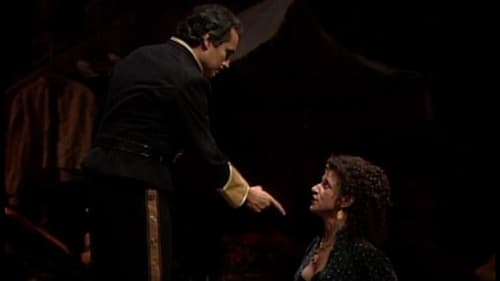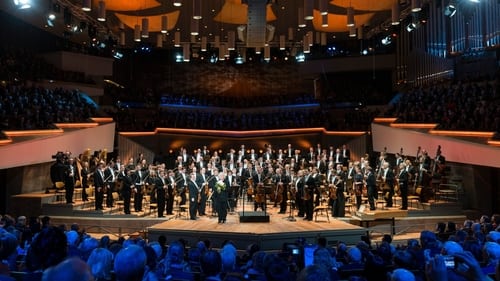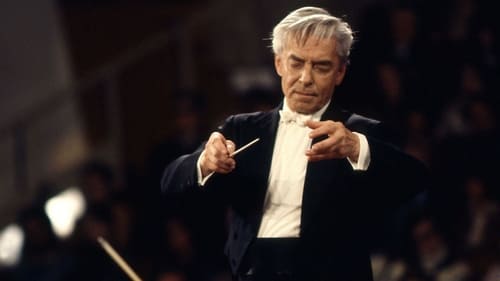Agnes Baltsa
Nacimiento : 1944-11-19, Lefkada, Greece

Despina
A production of Mozart's opera recorded live at Zurich Opera House in 2000. Cecilia Bartoli leads an all-star cast including Roberto Saccà, Liliana Nikiteanu, and Agnes Baltsa. The conductor is Nikolaus Harnoncourt. Filmed live at the Zurich Opera House in February 2000 on a set which visualises the subtitle "The School for Lovers", the plot revolves around two army officers arguing about the fidelity of their brides, then setting out to test their chastity. Despite the often playful humour, this is not only psychologically telling music-making, but reveals Mozart exploring the structure of opera, discarding convention to mix large ensemble sections with arias for as many different combinations of singers as possible. With Liliana Nikiteanu attractively contrasted with Bartoli, and thoroughly convincing performances by Roberto Sacca (Ferrando) and Oliver Widmer (Guilelmo), this Così has a freshness and flow which, coupled with the timeless romantic themes, feels very contemporary.

Vera Litassy-Eltz

Carmen
This all-star cast is framed by Peter Hall’s gritty, realistic production and conducted by James Levine, who brings out all the surging emotion and gripping drama in Bizet’s score. At the center of the story is Agnes Baltsa, whose smoky mezzo is tailor-made for the gypsy Carmen, an independent woman who glories in obeying only her own rules, but who is haunted by fate. Superstar tenor José Carreras is Don José, the solider from a small town who catches Carmen’s eye and is destroyed by his growing obsession with her. Samuel Ramey is the charismatic matador Escamillo, who lures Carmen away from Don José with tragic result. Leona Mitchell is Micaëla, the simple girl from Don José’s hometown who cannot save him. March 21, 1987 Matinee Broadcast.

Eboli
A live performance of Giuseppe Verdi's opera.

Octavian
A production of Strauss' opera 'Der Rosenkavalier' performed at the Saltzburg Festival in 1984. Includes the Vienna State Opera Choir, the Philharmonic Orchestra with singers Wilma Lipp, Anna Tomowa-Sintow and Agnes Baltsa. Conducted by Herbert Von Karaja

Self - Soprano
This installment in the "Karajan Legacy" series captures the acclaimed conductor leading the Vienna Philharmonic Orchestra with the Vienna State Opera Chorus and the Sofia National Opera in a masterful performance of Verdi's "Requiem." Filmed in 1984, the concert features an array of renowned soloists, including tenor José Carreras, soprano Anna Tomowa-Sintow, bass-baritone José van Dam, bass Kurt Moll and mezzo-soprano Agnes Baltsa.

Giulietta
There are many "editions" of this opera (Offenbach died before completing the score)and this tape offers the standard one.

Self - Contralto
The annual New Year’s Eve Concert is one of the highlights in the calendar of every classical music fan in Berlin and beyond. On New Year‘s Eve, the Berliner Philharmoniker invite an exceptional soloist for a festive gala. Together, the musicians bid farewell to the old year and welcome the new. The 1977 concert was conducted by Herbert von Karajan and featured Ludwig van Beethoven's Symphony No. 9 and the Chor der Deutschen Oper Berlin.

Self
Karajan's very best video Beethoven 9th Symphony, recorded December 31, 1977. The Quartet of vocal soloists and Chorus in IV are superb. This is much better than Karajan's 1968 Berlin Philharmonic Beethoven 9 video (DG), filmed in the Philharmonie with no live audience present.

Herself
Leonard Bernstein made these recordings during his wonderfully productive collaboration with the Wiener Philharmoniker in the mid-1970s when he was at the peak of his career. Humphrey Burton's direction is, as always, very fine, giving the viewer/listener both the larger picture and highlighting individual soloists, players or groups of musicians and, of course, the maestro. The video and audio tracks show their age, but are quite acceptable even for today's standards. Bernstein's Seventh is everything one could desire: dark and spooky, highly sensual, but also structurally strong and assertive where needed. Bernstein's reading does not gloss over breakdowns in tonality and the foreshadowing of later musical developments.







